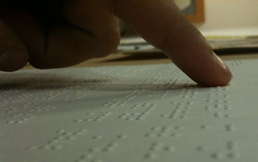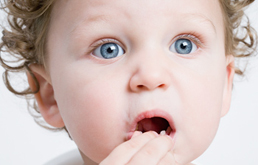Screening for Autism
EEG brain scans may someday allow doctors to identify – and treat – babies at risk for autism.

EEG brain scans may someday allow doctors to identify – and treat – babies at risk for autism.

The surprising way the brain processes Braille, bilingualism staves off dementia, and new research on stuttering. Also: why being lonely could change how your immune system works, and the relationship between popularity and bullying.
Researchers are trying to predict which children will become persistent stutterers in order to provide them with needed speech therapy.

ANNUAL MEETING SPECIAL: The new science of aeroecology, deconstructing taste preferences, new ways to store energy, and 3-D printers that could one day produce replacement organs.
How early or late you hit puberty influences your risk of osteoporosis in old age.

Left-handers suffer more from learning disabilities but can also excel in spatial visualization.
A new study reflects an alarming lack of science literacy among U.S. college students.
Researchers have identified several genetic and environmental factors that may contribute to Attention-Deficit Hyperactivity Disorder (ADHD).
FLU SEASON: Can exercise help stave off illness? Changes to the seasonal flu vaccine, bacterial surprises, and better ways to purify water in developing countries. Also: did life originate between mica sheets?
A new voice-analysis technique may help doctors screen young children for signs of autism.
Researchers test a smoking vaccine, the relationship between schizophrenia and creativity, and post-partum depression in men.
Exposing pregnant women to a common air pollutant may impact their children's intelligence.
THE BRAIN: Empathy and aggression share the same neural circuitry, chronic pain sufferers process acute pain differently, how a brain implant made of silk could help epilepsy patients, the effects of pre-natal air pollution exposure on children's cognitive performance, and the psychology behind the Ouija board.
Children with impaired muscle coordination may benefit from learning to perform magic tricks.
INSIDE THE MIND: Scanning memories in the brain, the neural overlap between music and language, inside the mind of a sleepwalker, the cognitive consequences of teenage binge drinking, and more.
Teen binge drinking causes brain damage and cognitive impairments that may be permanent.
An innovative exhibition helps children learn the concepts behind biological evolution.
